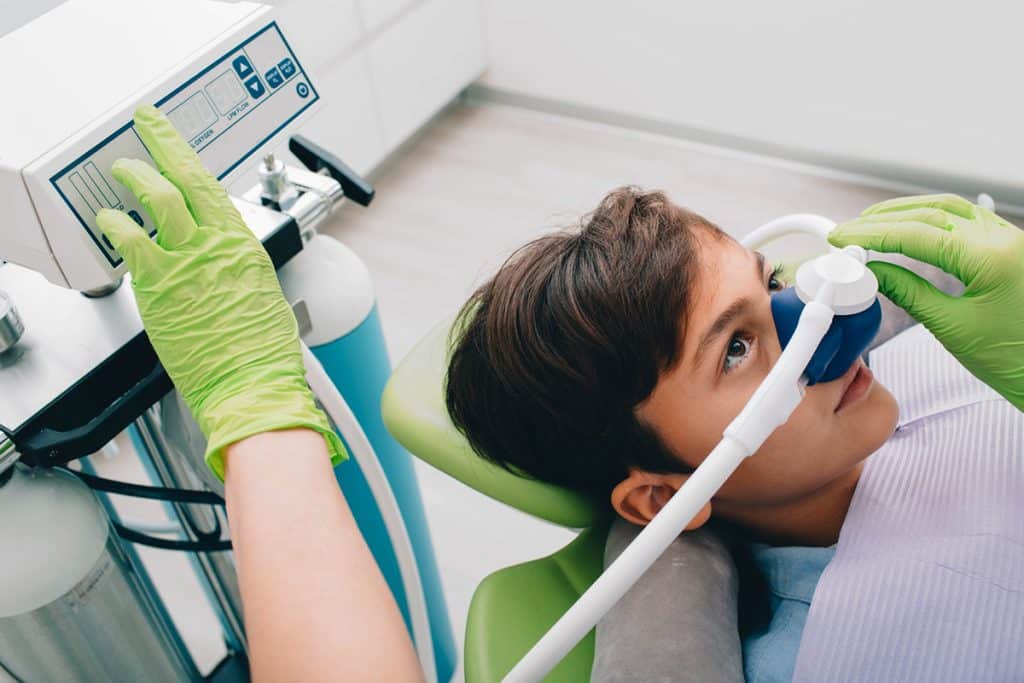How Does Sedation Dentistry Work?

Going to the dentist can be an anxiety-inducing experience for many people, often preventing them from seeking the care they need. Thankfully, sedation dentistry provides a solution that ensures comfort and relaxation throughout your dental procedures. At Fairbanks Dental Associates, we believe in empowering patients with knowledge so they can feel confident about their care. This guide explains how sedation dentistry works and how it helps patients feel at ease while receiving necessary treatments.
What Is Sedation Dentistry?
Sedation dentistry uses medication to help patients relax during dental procedures. It is commonly referred to as "sleep dentistry," but in most cases, patients remain awake, albeit in a deeply relaxed state. Options available include oral sedation, nitrous oxide (commonly known as laughing gas), and IV sedation. Each method is selected based on the patient’s level of anxiety and the complexity of the procedure.
Patients often describe the experience as feeling drowsy or unbothered by the sights, smells, and sounds that may otherwise make them uncomfortable. This approach ensures that valuable dental treatments are accessible to everyone, especially those who fear the dentist or struggle with sensitive oral health conditions.
Types of Sedation Levels
One of the advantages of sedation dentistry is the flexibility in tailoring the sedation level to the patient’s specific needs. Here are the main options:
- Minimal Sedation: You remain awake but feel completely relaxed. Nitrous oxide, inhaled through a small mask over your nose, is commonly used for this purpose.
- Moderate Sedation: Often delivered orally through medication, moderate sedation allows you to relax further, although you’ll still be able to respond to the dentist.
- Deep Sedation: This level leaves you on the brink of sleep but still somewhat conscious. IV sedation, which is administered intravenously, is a common approach here.
- General Anesthesia: This is the deepest level, where you are entirely unconscious. It is typically reserved for complex procedures like oral surgery.
Your dentist will assess your medical history, anxiety levels, and the procedure's requirements to recommend the most suitable option for you.
Benefits of Sedation Dentistry
The benefits of sedation dentistry extend beyond just helping with dental fears. Here are some of the advantages it offers:
- Reduced Anxiety: A calm mind allows you to receive treatment without distraction or discomfort, making regular dental visits more manageable.
- Pain-Free Experience: Sedation minimizes discomfort across procedures, from minor cleanings to more invasive interventions.
- Efficient Appointments: With relaxation in place, dentists can complete more work in fewer visits since they don’t have to stop and accommodate sudden pain or anxiety.
- Improved Comfort for Long Procedures: For treatments that take several hours to complete, sedation ensures you remain relaxed and comfortable throughout.
- Accessibility for Those with Special Needs: Sedation dentistry provides a comfortable and safe environment for patients with conditions like sensory sensitivities or physical impairments.
By addressing both emotional and physical concerns, sedation dentistry ensures a more positive dental experience for all.
When Is Sedation Dentistry Recommended?
While sedation is an excellent option for anyone feeling uneasy about visiting the dentist, it is especially beneficial for patients in the following situations:
- Dental Anxiety or Phobia: Patients who feel fear or panic surrounding dental visits can benefit greatly from sedation, making their experience stress-free.
- Sensitive Gag Reflex: For individuals who have a strong gag reflex, sedation can help suppress these sensations, allowing for smoother treatments.
- Extensive Procedures: Compassionate care during longer or more intensive dental work, such as root canals or extractions, is possible with sedation.
- Low Pain Threshold: Patients who are particularly sensitive to pain may find sedation helpful in making dental care approachable.
- Difficulty Sitting Still: Young children or individuals with conditions like ADHD may find that sedation eases the challenge of staying calm during appointments.
Frequently Asked Questions About Sedation Dentistry
What should I expect before and after sedation dentistry?
Before your procedure, your dentist will review your medical history and discuss the sedation options available to you. Depending on the type of sedation, you may be asked to avoid eating or drinking before the procedure. After sedation, especially for moderate or deeper levels, it’s important to have someone accompany you to drive you home. Some patients may experience drowsiness, so scheduling time to rest afterward is recommended.
Is sedation dentistry safe?
Yes, sedation dentistry is generally safe when conducted by trained professionals. At Fairbanks Dental Associates, our team takes comprehensive measures by conducting a thorough health evaluation beforehand and monitoring you closely throughout the procedure. With personalized care and advanced protocols, your safety and comfort are our top priorities.
At Fairbanks Dental Associates, we are proud to serve the Temple and Belton, TX communities by providing compassionate and professional dental care, including sedation dentistry. From routine visits to specialized treatments, we make your comfort our priority. Schedule an Appointment with us today to take the first step toward stress-free dental care.

